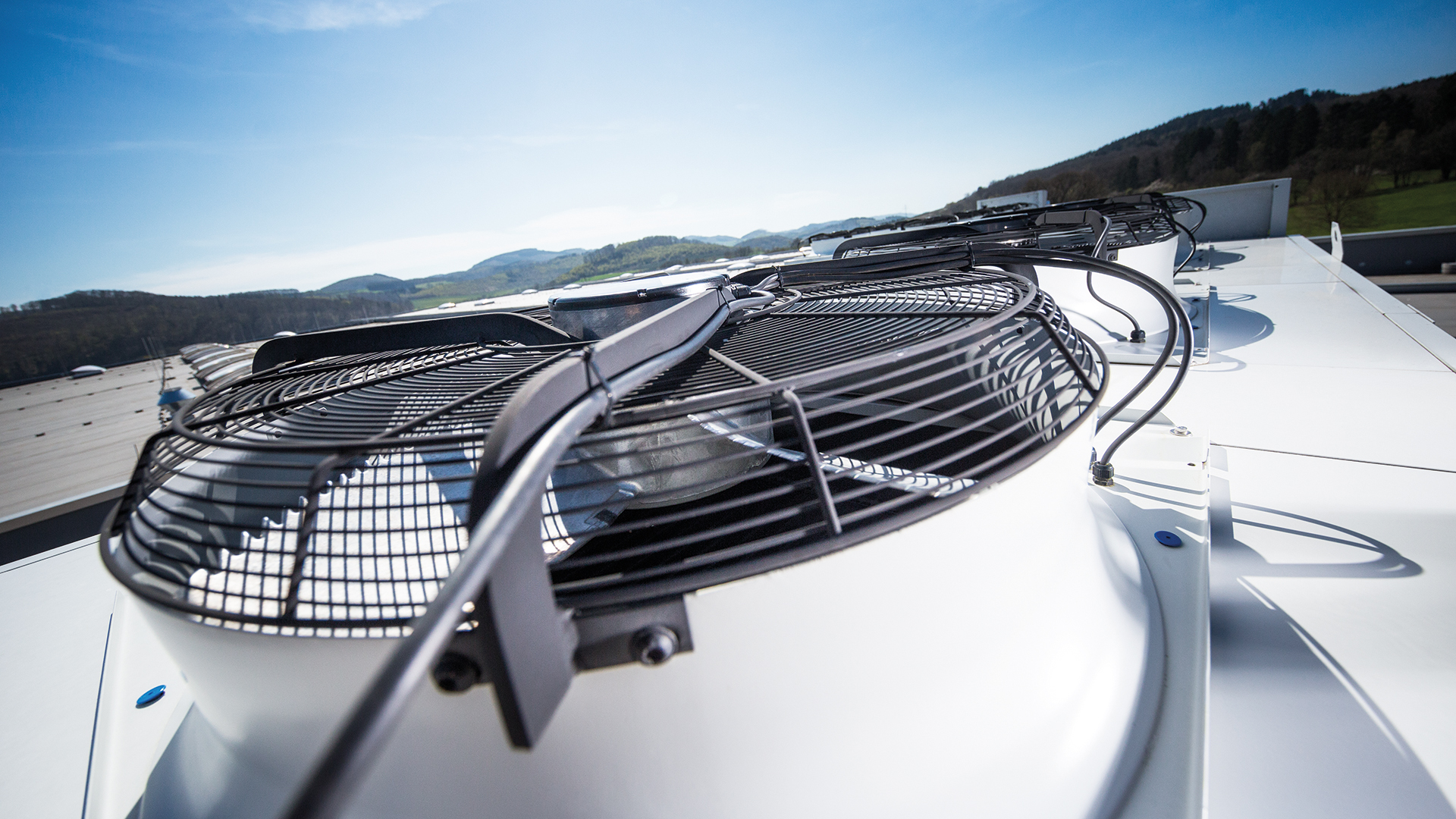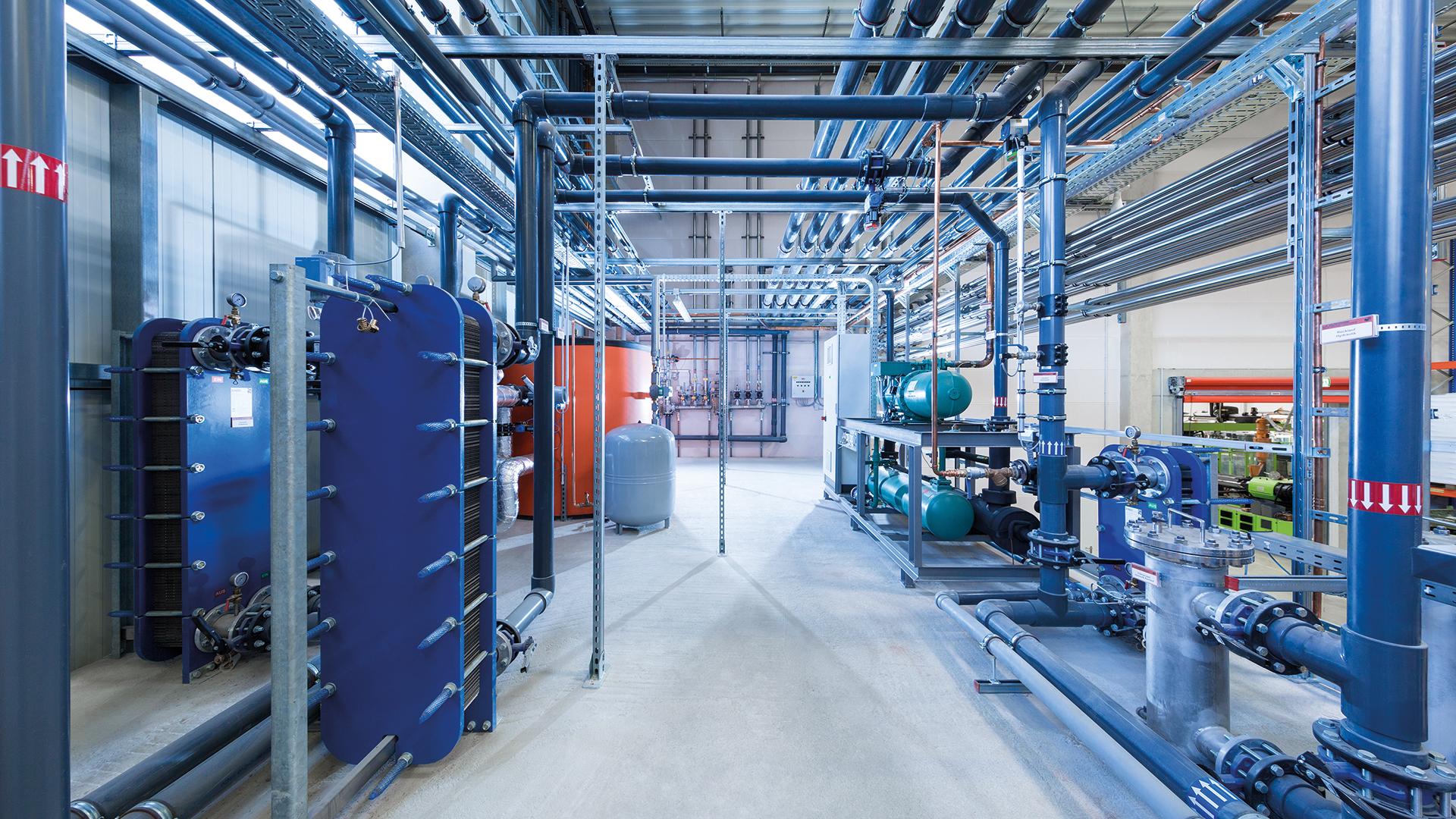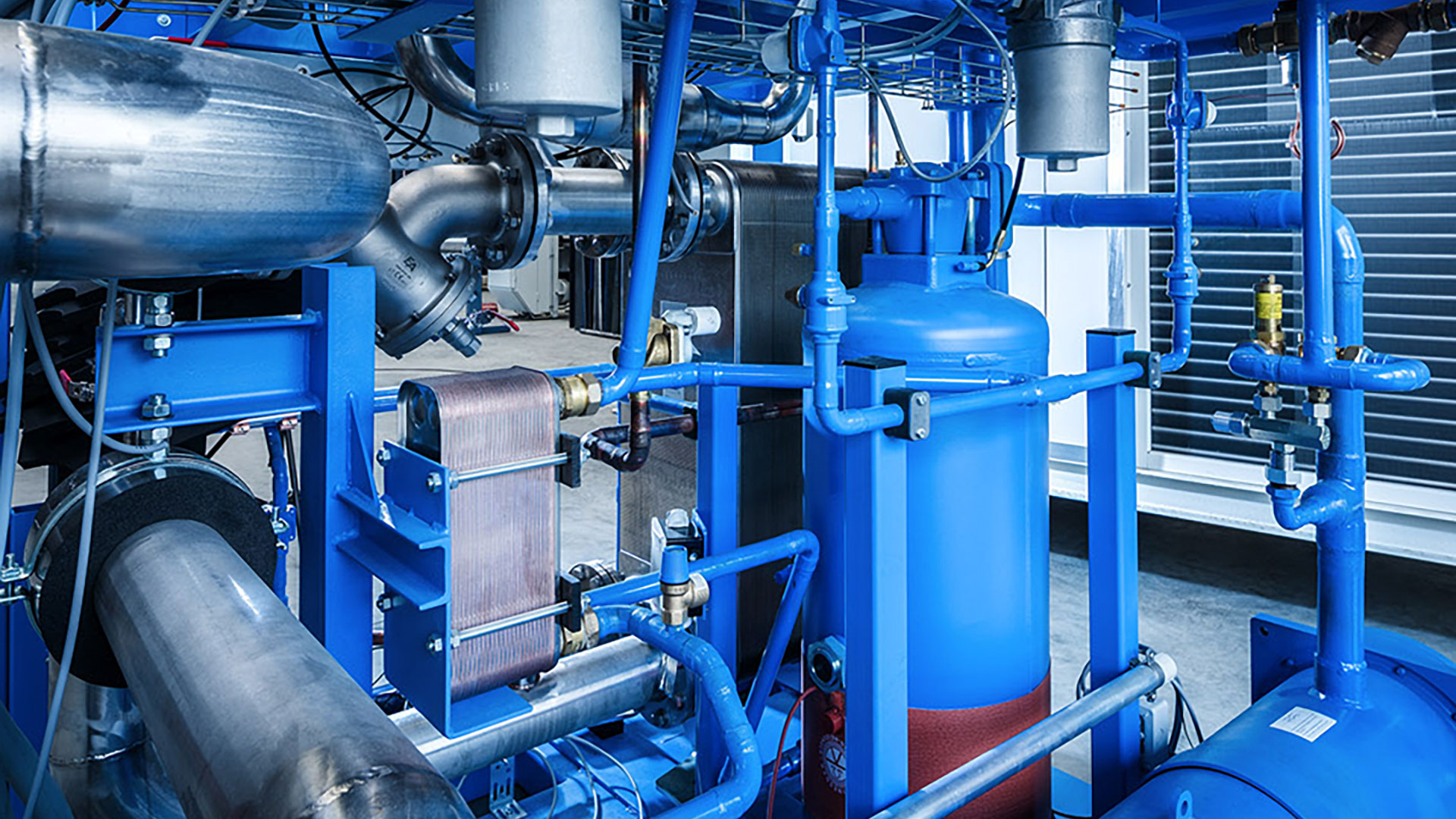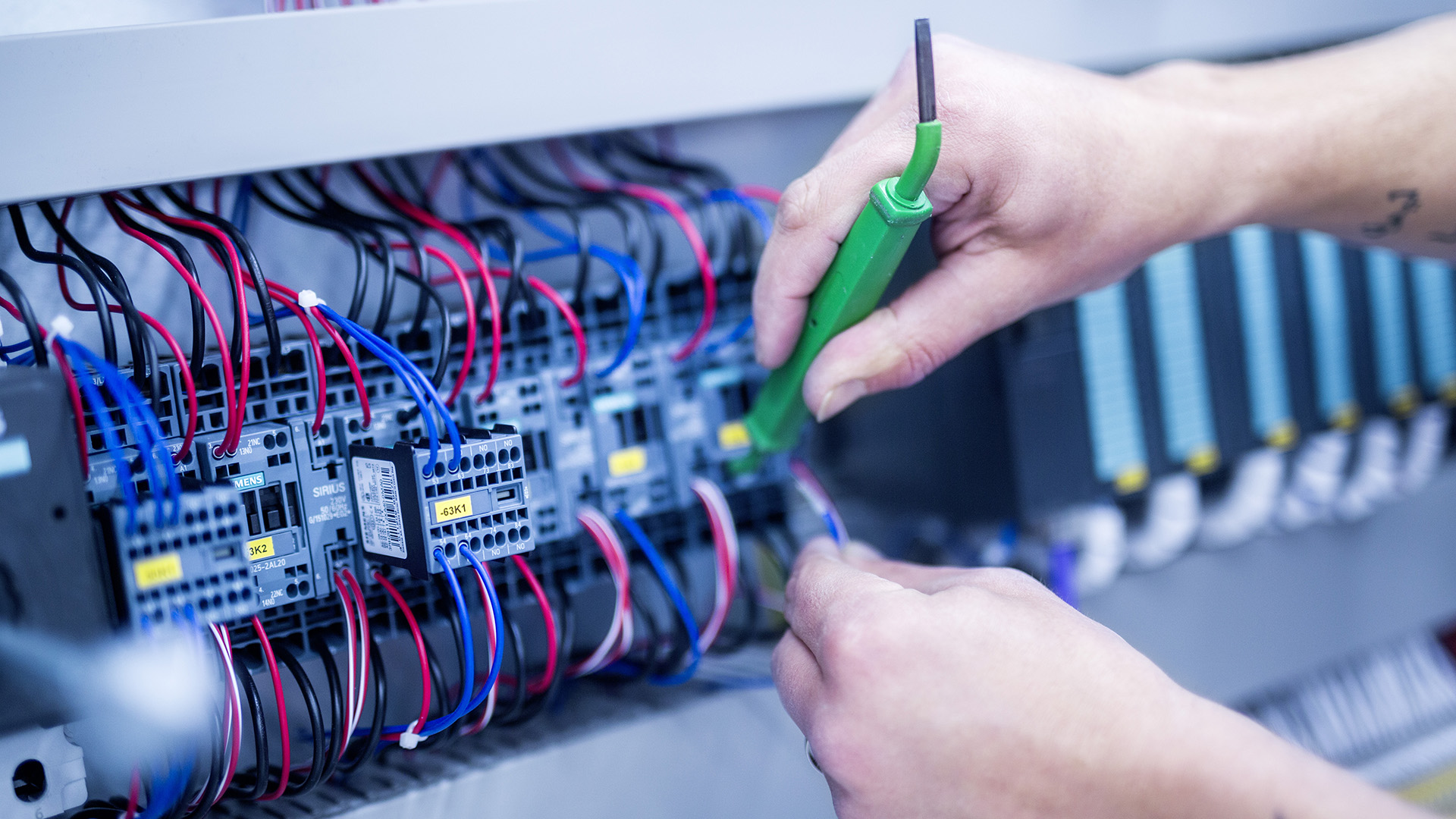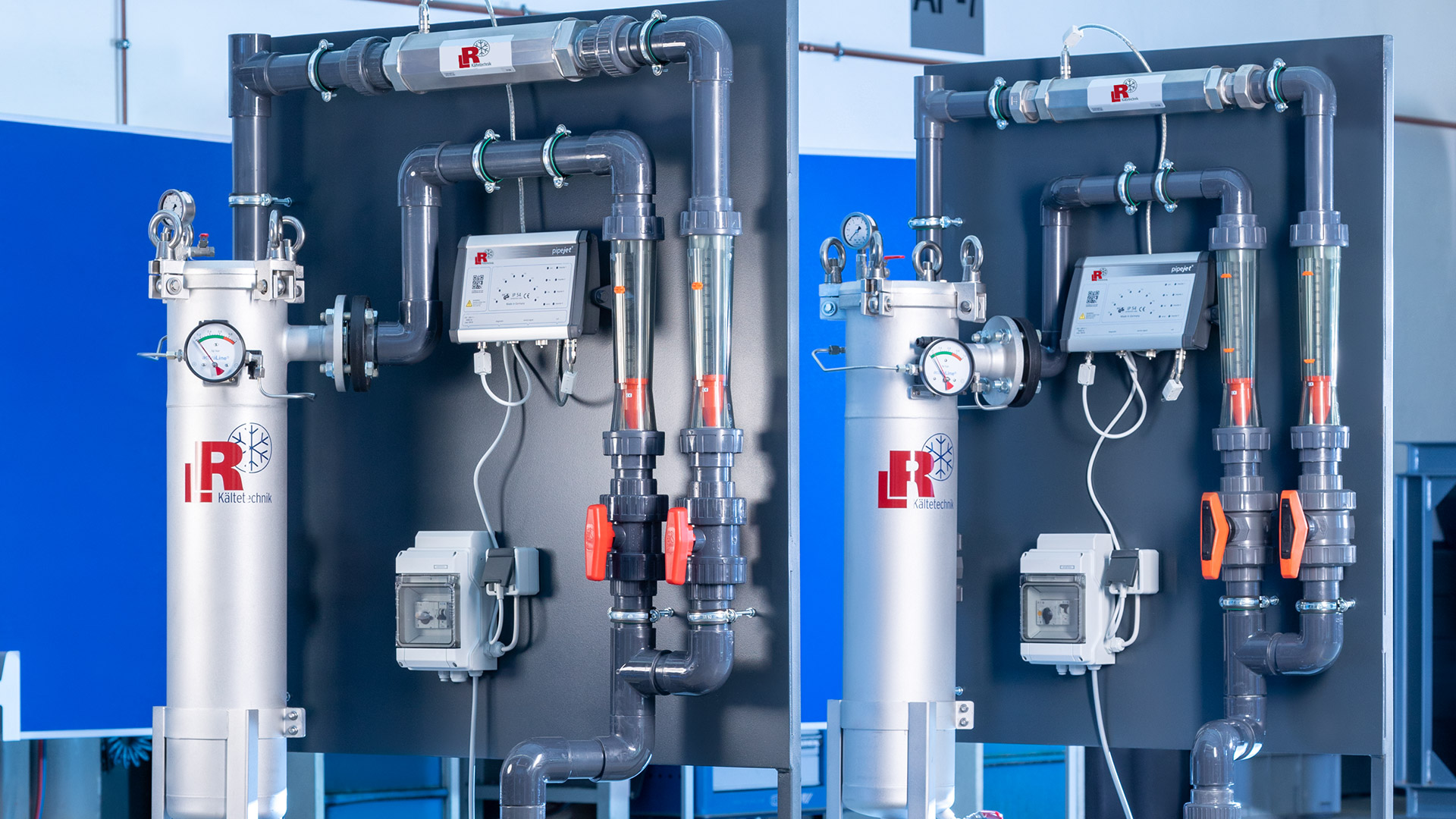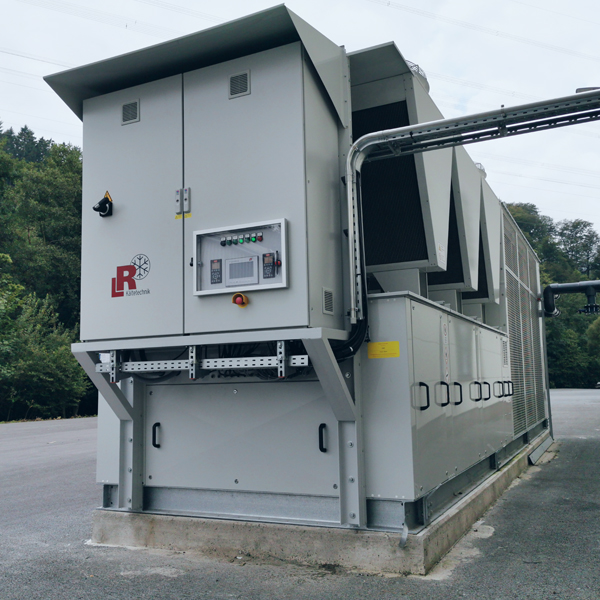The machining specialist Frank Funke in Sundern has replaced several decentralised refrigeration systems on precision machines with a central refrigeration machine with a cooling capacity of 390 kW. The result is a future-proof, reliable, and energy-saving system cooling.
High-precision lathes depend on constant temperature control. For this purpose, the temperature of the hydraulic and cooling lubricant circuits is continuously monitored and precisely controlled. In order to achieve the required process capability within the tight manufacturing tolerances that are also specified, control within a narrow temperature band is necessary.
For Franz Funke Zerspanungstechnik GmbH & Co. KG in Sundern, the operating temperature of the approximately 25 lathing centres is therefore an important factor. The company has an excellent reputation due to its specialisation in high-quality turning, especially that of non-ferrous metal components (which are in demand in sanitary and installation technology, the electrical industry and – not least of all – in medical technology). The company cuts around 5,000 tonnes of (non-ferrous) metal per year, and that trend is still on the rise.
Cooling with an undesirable side effect
Until recently, systems from renowned manufacturers like Index and Schütte were all equipped with decentralised cooling units that kept the cooling lubricant and hydraulic oil at a temperature of 28 °C.
This ensured the desired precision, but the cooling led to an undesirable side effect. Since the cooling units emitted their exhaust heat into their surroundings, the premises would heat up considerably. In addition, the energy required for cooling was considerable.
ZentrCentral refrigeration system for all machines
Therefore, the idea arose to replace the refrigeration units on the machines with a central refrigeration system, and the right partner for this task was found in the direct vicinity. L&R Kältetechnik GmbH & Co. KG, also based in Sundern, has already implemented numerous similar projects throughout Germany and beyond.
For this application, L&R’s project engineers planned an air-cooled chiller (with a cooling capacity of 390 kW), which was to be connected to all processing equipment via a closed circuit. Two refrigeration circuits ensure the necessary redundancy: In the event of a circuit failure, sufficient cooling is still available for (limited) production.
Energy efficiency right down the line
Those responsible at Franz Funke attach great importance to sustainable, energy-efficient production. The economy of scale already contributes to this: A central system simply works more efficiently than many small ones. In comparison with other refrigeration systems of this size, however, the machine designed and built by L&R works in a particularly energy-saving way. This is because KSB’s highly efficient myFlow pumps are operated by speed-controlled electric motors and controlled by the central PLC, as required.
The free cooling unit makes a significant contribution to energy efficiency. It allows for cold to be generated, not by the refrigerating machine, but from the environment at outside temperatures of up to approx. 15 °C – and, as a result, across a very broad time frame. Cold is thus available at virtually no cost.
On the other end of the cooling/heating cycle, (exhaust) heat is generated, which was a major reason for purchasing the new refrigeration plant. With the central chiller, this otherwise unwanted heat can now be put to good use heating a second production hall during the cold season thanks to an additional desuperheater. This also saves energy and reduces Franz Funke’s CO2 emissions.
Set for growth
The central refrigeration system was delivered and installed almost simultaneously with a new multi-spindle automatic lathe from Schütte, which Funke is using to expand its capacity for producing precision turned parts. Both systems are part of the company’s expansion strategy. Managing Director, Till Wassner: “We have set our sights high and will grow continuously here at the site.” In doing so, the aspect of sustainability has not been disregarded: “Environmental protection is enshrined in our guiding principles and forms the basis for a successful future. We work in an energy- and resource-saving way, strive for closed material cycles and permanently optimise our processes with the aim of protecting the environment.”
The refrigerant of the future
Yet another reason why Funke has chosen the right partner in L&R. This is because the refrigeration specialist has been working intensively and proactively on alternatives to refrigerants, such as R 134a (which were previously common, but can no longer be used permanently due to F-Gas Regulations).
From L&R’s point of view, the future lies with natural refrigerants, and in particular, with propane (R 290). Propane is available worldwide at low cost; its environmental parameters (GWP – Global Warming Potential; ODP – Ozone Depletion Potential) are very favourable and very economical; highly efficient refrigeration systems can be realised with this medium. These are good reasons why those responsible at Funke followed L&R’s recommendation and have now commissioned a new, highly efficient and future-proof refrigeration system using the environmentally friendly refrigerant propane. Their energy consumption is precisely recorded: An energy meter and a cooling capacity meter were installed and document the relationship between energy consumption and generated cooling.
Sector
Metalworking
System solution
Chillers for outdoor installation
